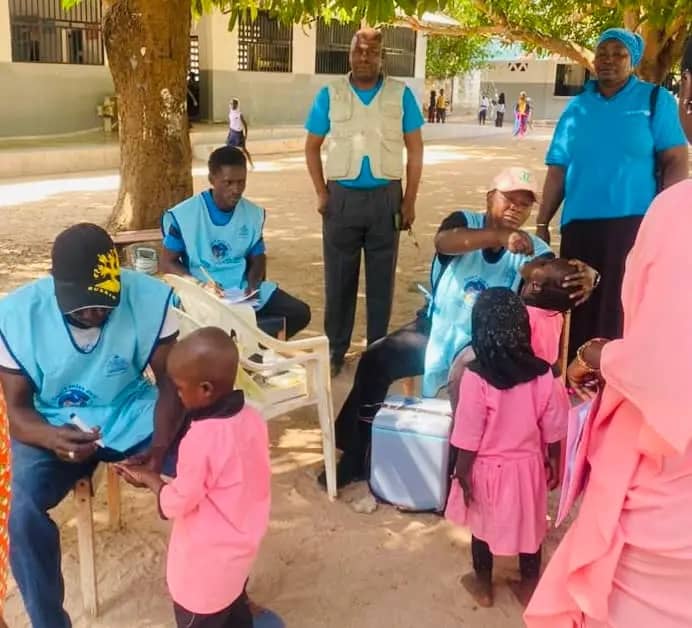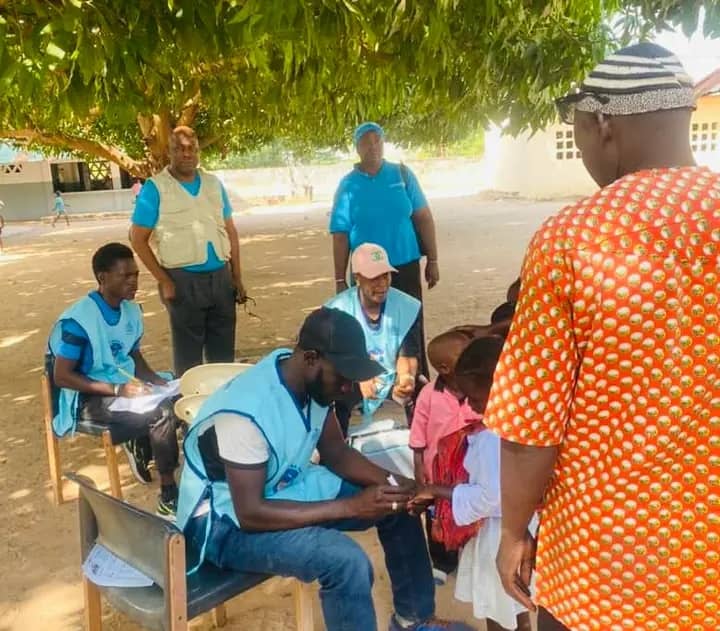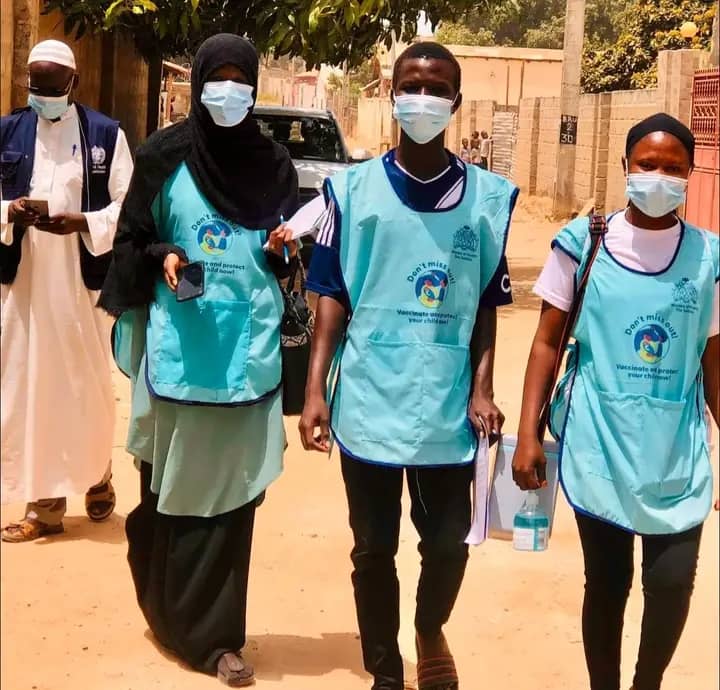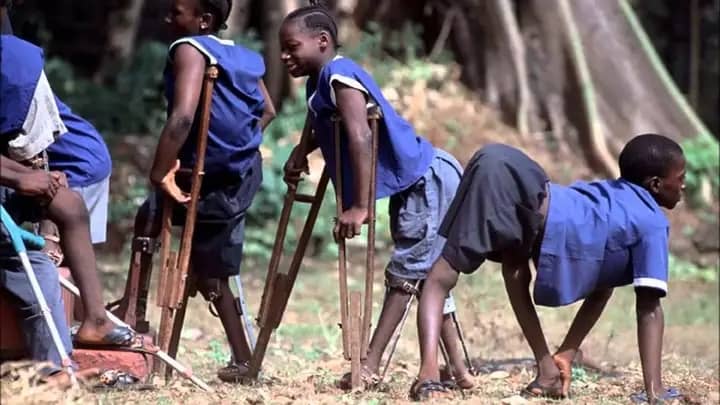
The Gambia has launched the second phase of its national polio vaccination campaign, with the ambitious goal of vaccinating 426,481 children under the age of five.
Polio, a viral disease that can cause permanent paralysis and death, was once a widespread threat in The Gambia and around the world.
The Gambia experienced its first polio cases in the early 1980s, with the disease wreaking havoc in many communities. Before the introduction of widespread vaccination campaigns, polio caused numerous deaths and lifelong disability for many children.

It is estimated that the country lost several hundred lives to the disease, with many others left with permanent physical disabilities, including paralysis.
Polio outbreaks in the 1980s and early 1990s also led to fear and widespread health crises, as the disease often affected children under the age of five.
However, through concerted efforts led by the Ministry of Health in collaboration with global health organizations, The Gambia has made remarkable progress in combating the disease.
The country has not reported a single case of polio since 1986, a testament to the success of nationwide immunisation campaigns, robust surveillance systems, and the dedication of health workers and community members alike.
The Gambia’s success in eliminating polio has been celebrated globally as a major victory in public health.

Yet, the detection of circulating vaccine-derived poliovirus (CVDPV) through environmental surveillance has highlighted the continued risk of polio transmission in the region, underlining the need for ongoing vigilance.
With neighboring countries still grappling with polio outbreaks, The Gambia remains at risk of viral importation, making these vaccination campaigns critical in ensuring the country’s polio-free status is maintained.
In partnership with the Global Polio Eradication Initiative (GPEI), the World Health Organisation (WHO), and UNICEF, the Ministry of Health is pushing forward with its vaccination efforts.
The campaign targets both urban and rural areas, with vaccination teams deployed to schools, health centers, communities, and homes to ensure no child is left behind.
Sidat Fofana, Program Manager for the Expanded Program on Immunisation (EPI), emphasised the critical importance of the campaign in maintaining The Gambia’s polio-free status.
“Polio is a preventable disease, and we must do everything we can to protect our children from it. This campaign is not just about a vaccine; it’s about securing the future of our nation’s health,” he said.
Fofana pointed out that while The Gambia has successfully eliminated polio, the detection of CVDPV is a reminder that vigilance is crucial in the fight against the disease.
“We’ve come so far, but if we become complacent, we risk undoing all of the progress we’ve made,” he warned.
With health workers reaching out through mobile services and home visits, the campaign is designed to ensure that every child is vaccinated, regardless of location.
Mbayang Johm, Programme Officer for the EPI Communication Unit, expressed optimism about the campaign’s success, noting the positive outcomes from previous vaccination efforts.

“Community participation is key to our success. The support we’ve seen from parents and local leaders has been overwhelming, and it’s this collective effort that will help us protect our children,” she said.
As part of the global effort to eradicate polio, The Gambia’s campaign serves as a model for other countries in Africa. By maintaining its polio-free status and continuing its vaccination programs, The Gambia is contributing to the worldwide fight to rid the world of polio once and for all.
By Adama Makasuba










Recent Comments